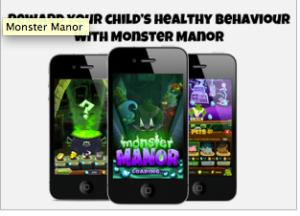Monday afternoon in the Washington DC area, a panel of serious game developers moderated by fellow game developer and co-founder at Digitalmill, Ben Sawyer (@BenSawyer) addressed a packed room of mHealth Summit attendees looking to become educated on the growing movement that is serious games, or games for health. The panel included Dr.
Monday afternoon in the Washington DC area, a panel of serious game developers moderated by fellow game developer and co-founder at Digitalmill, Ben Sawyer (@BenSawyer) addressed a packed room of mHealth Summit attendees looking to become educated on the growing movement that is serious games, or games for health. The panel included Dr. Dan Baden family physician from the CDC, Michael Fergusson, CEO & Founder, Ayogo (@fergusson), Dr. Doug Elwood, physician/entrepreneur at NYU Langone Medical Center and Bonnie Feldman DDS, MBA @DrBonnie360. Throughout the short 75 minute session, the panel members each discussed their own individual projects, as well as their thoughts on serious games versus simple gamification strategies.
 If all this sounds foreign to you right now, give it time. Give it time for key healthcare stakeholders to adjust to the idea that instead of prescribing a medication for high blood pressure, they may instead be prescribing an app to manage weight and diet long before heart disease sets in. Or giving pediatric patients a game to play in order to keep their Type I diabetes in check like never before. Give it time for serious game developers to put out the peer-reviewed, or comparative effectiveness, research that supports an app over atorvastatin to manage cholesterol.
If all this sounds foreign to you right now, give it time. Give it time for key healthcare stakeholders to adjust to the idea that instead of prescribing a medication for high blood pressure, they may instead be prescribing an app to manage weight and diet long before heart disease sets in. Or giving pediatric patients a game to play in order to keep their Type I diabetes in check like never before. Give it time for serious game developers to put out the peer-reviewed, or comparative effectiveness, research that supports an app over atorvastatin to manage cholesterol.
The future was at mHealth this week–and the only thing slowing down a faster paced adoption of serious games seems to be the capital and commercial partnerships allowing developers the ability to scale serious game solutions to address the growing demand of healthcare for cost effective disease management alternatives. Sawyer also commented that: “games democratize complex systems…and enhance health literacy.” Michael Fergusson shared “how tos” for developers while providing examples of his design-rich diabetes management apps available through his company, Ayogo. (see included photo of Ayogo’s Monster Manor for more information). Dan Baden shared the work being done at the CDC above and beyond the attention-getting Zombie Apocalypse disaster preparedness campaign. Additional efforts include the re-purposing of content for graphic and YA (young adult) novels on disease states, as well as management. Hats off to the CDC for stepping far outside the box and understanding where people/patients actually are in order to reach them.
The games for health space is ripe and ready for those looking to treat, manage and connect people with novel, cost-effective health solutions. While skeptics may want to wait for all the data, early adopters will find they are able to reach, and move, patients like never before–maybe because well done serious games are structured to affect behavior modification traditional medicine has not tried to change, or struggles to move the needle when they do. Think the big 3: obesity, heart disease and diabetes–all often impacted greatly “simply” by the choices patients.
For “serious” information on serious games (aka games for health) you can try the following resources:
- Debra Lieberman, Director, Games for Health Research
- Ben Sawyer’s Games for Health
- HopeLab’s – Makers of Re-Mission and Zamzee
First posted on Educate the Young
![]()







